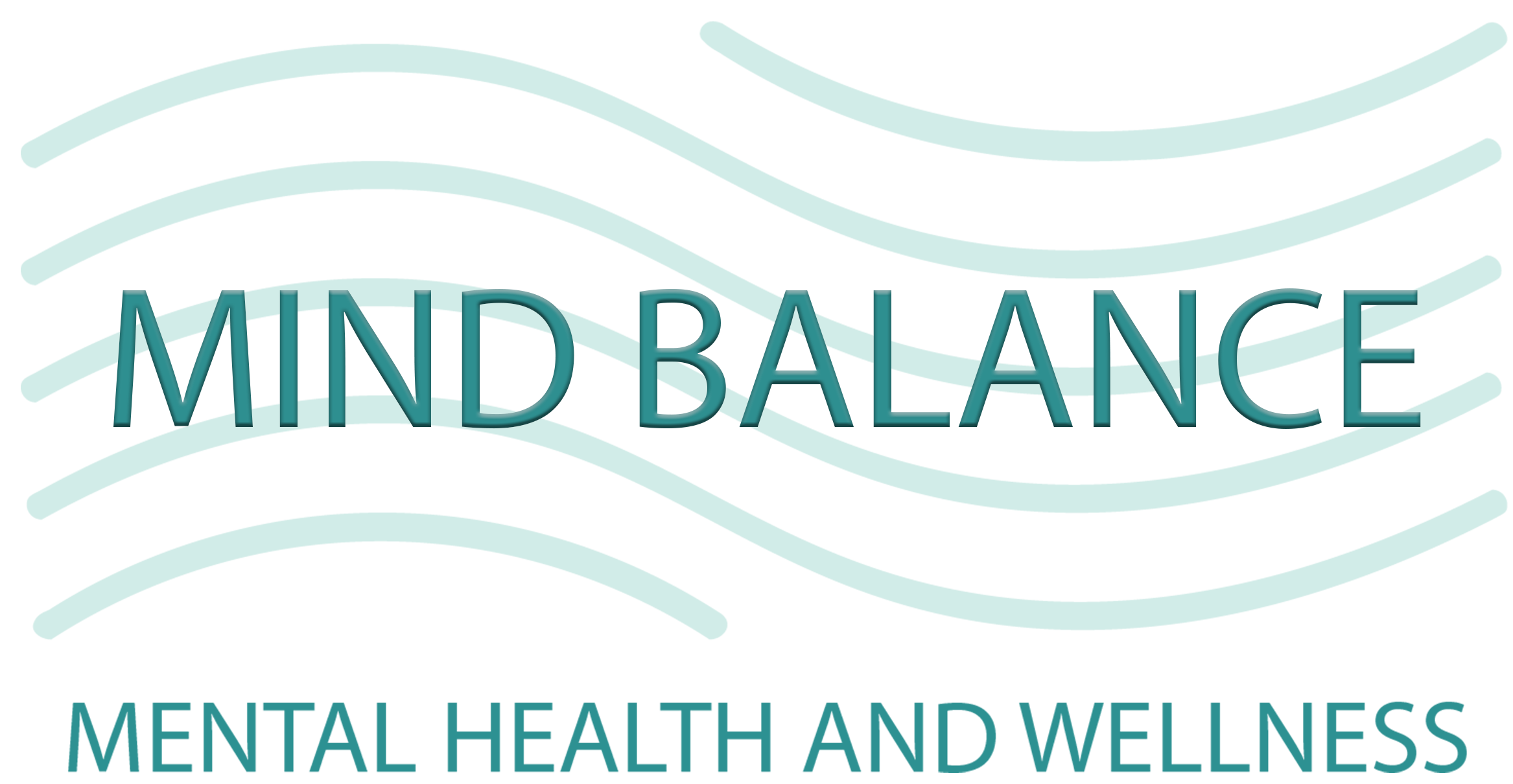Understanding Mental Health Treatments
Importance of Psychotherapy
Psychotherapy is a cornerstone of effective mental health treatment. At Mind Balance Mental Health and Wellness, we emphasize the importance of psychotherapy in addressing a wide range of mental health conditions.
Psychotherapy involves a variety of techniques designed to help individuals understand and manage their emotions, behaviors, and thoughts. Common forms of psychotherapy include:
- Cognitive Behavioral Therapy (CBT)
- Exposure Therapy
- Dialectical Behavior Therapy (DBT)
Combining psychotherapy with medication is the most effective approach to promoting recovery from mental illness. This integrated treatment helps to address the root causes of mental health issues while simultaneously managing symptoms.
Our team at Mind Balance Mental Health and Wellness provides specialized therapies tailored to each individual’s unique needs. Whether you need anxiety treatment, depression treatment, or ocd treatment, our experienced therapists are here to guide you through your path to healing.
Role of Medication
Medication plays a crucial role in the comprehensive management of mental health disorders. While medication alone does not cure mental illness, it can significantly help manage symptoms, making it easier for individuals to engage in psychotherapy and other therapeutic activities.
Common categories of medications used in mental health treatment include:
- Antidepressants: These medications help reduce feelings of sadness, anxiety, and suicidal thoughts. Types include tricyclic antidepressants, SSRIs, and SNRIs. For those with treatment-resistant depression, esketamine, derived from ketamine, can be prescribed as a nasal spray.
- Examples: Fluoxetine (Prozac), Sertraline (Zoloft)
- Mood Stabilizers: These are used to control extreme mood swings and to treat long-lasting depression. They do not interfere with normal emotional experiences.
- Examples: Lithium, Valproate
| Medication Type | Purpose | Examples |
|---|---|---|
| Antidepressants | Reducing sadness, anxiety, suicidal thoughts | Fluoxetine, Sertraline |
| Mood Stabilizers | Controlling extreme mood swings, long-lasting depression | Lithium, Valproate |
At Mind Balance, we understand that each individual’s experience with mental illness is unique, which is why our treatment plans are tailored specifically to meet the needs of each patient. We work closely with clients to monitor the effectiveness of their medication and make adjustments as needed to ensure optimal outcomes.
For more information about our medication management services, including tele-psychiatry and outpatient psychiatry, please visit our website. By integrating the right combination of psychotherapy and medication, we strive to provide comprehensive care for mental health and wellness.
Varied Treatment Approaches
Mental health treatment encompasses a variety of approaches tailored to individual needs. At Mind Balance Mental Health and Wellness, we offer Charlotte mental health treatment solutions that ensure effective and personalized care.
Hospitalization when Necessary
Hospitalization may be necessary in certain instances to closely monitor individuals, provide accurate diagnoses, or adjust medications during a mental health crisis. This intensive level of care is reserved for severe cases requiring immediate and continuous attention.
Our hospital partners and outpatient psychiatry services are equipped with trained professionals to manage these situations diligently.
Support Groups for Guidance
Support groups play an integral role in [mental health treatment] by connecting individuals with shared experiences. These nonprofessional groups aim to guide members towards recovery, providing emotional support and valuable insights.
Key benefits of support groups at Mind Balance:
- Emotional support and understanding
- Coping strategies and shared experiences
- Encouragement from peers
We offer support groups for various conditions, including anxiety, depression, and PTSD.
Complementary & Alternative Medicine
Complementary & Alternative Medicine (CAM) can be used alongside or instead of standard care for mental health conditions. CAM treatments include a variety of practices that support overall well-being and mental health.
Popular CAM treatments:
- Mindfulness and meditation
- Nutritional supplements
- Acupuncture
- Yoga and physical exercise
Mind Balance integrates CAM with traditional treatments to offer a holistic approach to wellness. Our professionals guide clients in selecting appropriate complementary therapies that align with their treatment goals.
For detailed information on these varied approaches and to explore which treatment might be right for you, check out our articles on tele-psychiatry and behavioral health treatment.
Trust Mind Balance Mental Health and Wellness to provide the comprehensive, individualized care necessary for achieving optimal mental health.
Common Mental Health Conditions
Depression, Anxiety, Bipolar Disorder
Depression, anxiety, and bipolar disorder are among the most common mental health conditions that we treat at Mind Balance Mental Health and Wellness.
Depression: This condition affects millions of people by altering their mood, thoughts, and physical health. Symptoms include prolonged sadness, loss of interest in previously enjoyable activities, and changes in sleep and appetite. Antidepressants are often prescribed for depression treatment, taking about 4 to 8 weeks to show improvements in sleep, appetite, and overall mood.
Anxiety: Anxiety disorders can manifest as constant worry, fear, or extreme nervousness that interferes with daily activities. Treatment often includes a combination of medication and therapy. Common medications like SSRIs help reduce symptoms. For effective anxiety treatment, therapies like Cognitive Behavioral Therapy (CBT) are also recommended.
Bipolar Disorder: Characterized by extreme mood swings, ranging from manic highs to depressive lows. Mood stabilizers such as Lithium are commonly prescribed to manage the condition. Regular monitoring of lithium levels is required for safe treatment (NIMH). Exploring our bipolar disorder treatment options can provide a comprehensive management plan.
| Condition | Symptoms | Common Treatments |
|---|---|---|
| Depression | Sadness, loss of interest, sleep and appetite changes | Antidepressants like SSRIs and SNRIs, esketamine for severe cases |
| Anxiety | Worry, fear, nervousness interfering with daily activities | Therapy (CBT), SSRIs |
| Bipolar Disorder | Manic highs, depressive lows | Mood stabilizers like Lithium (NIMH) |
Interference with Daily Life
Mental health conditions like depression, anxiety, and bipolar disorder can significantly interfere with daily life, affecting work, relationships, and personal well-being.
Impact on Daily Functions
- Work Performance: Persistent mental health issues can lead to decreased productivity and frequent absences.
- Social Interaction: Conditions like anxiety and depression can cause withdrawal from social interactions and activities.
- Physical Health: Mental health issues often result in physical symptoms such as fatigue, insomnia, or changes in appetite.
At Mind Balance Mental Health and Wellness, we understand the challenges individuals face and offer multifaceted treatment plans including medication, behavioral health treatment, and support groups. Our goal is to provide comprehensive care, enabling our clients to regain control of their lives.
For those seeking to manage their conditions effectively, resources such as therapy, medication, and support from loved ones can make a significant difference. Encouraging individuals to seek help and raising awareness about the importance of mental health are crucial steps in this journey.
Visit our sections on tele-psychiatry and outpatient psychiatry to explore more about the available treatment options.
Overcoming Mental Health Stigma
To foster a supportive environment for those seeking mental health treatment, it’s crucial to address and overcome the stigma associated with mental health conditions. Stigma can prevent individuals from seeking help, leading to worsening conditions or self-harm.
Encouraging Seeking Help
At Mind Balance Mental Health and Wellness, we prioritize encouraging individuals to seek help for their mental health concerns. Approximately one in five American adults experience mental illness each year, which equates to 46.6 million people. Despite this prevalence, many still hesitate to seek the care they need.
To encourage seeking help, we:
- Provide Education: Offering information about common mental health conditions such as depression, anxiety, and bipolar disorder helps demystify these issues.
- Promote Accessibility: Services like tele-psychiatry and outpatient psychiatry make it easier for individuals to access care, regardless of their location.
- Foster a Safe Environment: Creating a non-judgmental space where individuals feel comfortable discussing their mental health can encourage more people to seek help.
Raising Awareness
Raising awareness about mental health is an essential step in combating stigma. According to Dr. Christine Moutier of the American Foundation for Suicide Prevention (AFSP), attitudes towards mental health have improved over the years, with 90% of Americans now valuing mental and physical health equally. This shift is partially due to increased awareness and education.
To raise awareness, we:
- Engage with Community: Collaborating with community organizations and participating in awareness campaigns help spread the message about the importance of mental health.
- Utilize Social Media: Sharing information and success stories on platforms like Instagram, Facebook, and Twitter helps reach a broader audience.
- Host Workshops and Seminars: These events educate individuals on topics like the importance of seeking behavioral health treatment and recognizing symptoms of mental health conditions.
Here are some statistics highlighting the importance of mental health awareness:
| Metric | Percentage |
|---|---|
| American Adults Experiencing Mental Illness Annually | 20% |
| Children Aged 6-17 Experiencing Mental Health Challenges Annually | 17% |
| Americans Valuing Mental and Physical Health Equally | 90% |
| Individuals Meeting Criteria for a Mental Disorder (Lifetime) | 50% (Source) |
By focusing on education, accessibility, safe environments, community engagement, and comprehensive awareness campaigns, we aim to reduce the stigma surrounding mental health treatment and encourage more individuals to seek the help they need. For further reading, explore our articles on adhd treatment and bipolar disorder treatment.
Statistics on Mental Illness
Prevalence in American Adults
Mental health treatment is essential due to the high prevalence of mental illness among American adults. Each year, approximately one in five adults in the US experience mental illness, amounting to 46.6 million people. According to the National Comorbidity Study, 30% of individuals surveyed over a 12-month period met the diagnostic criteria for a mental disorder (NCBI). The same study reported that 50% of the population experienced a mental disorder at some point in their lives.
| Statistic | Data |
|---|---|
| Adults with Mental Illness per Year | 46.6 million |
| Percentage of Adults Affected Annually | 18.6% |
| Individuals with Serious Mental Illness | 4.1% |
| Population Meeting Diagnostic Criteria Over Lifespan | 50% |
Mental disorders can often lead to severe outcomes. Around 20.7 million adults in the US are diagnosed with a substance use disorder, 40% of whom also have a comorbid mental disorder (NCBI). Additionally, suicide, frequently linked to mental illness, is the 10th leading cause of death in the US and the second leading cause among people ages 15 to 34 (Cleveland Clinic).
Impact on Children
Children and adolescents are also significantly affected by mental health challenges. Each year, about 17% of children aged 6 to 17 experience mental health issues. Studies show that approximately half of all mental illnesses begin by age 14, and three-quarters by age 24 (Cleveland Clinic).
| Statistic | Data |
|---|---|
| Children (6-17) with Mental Health Issues Annually | 17% |
| Mental Illness Onset by Age 14 | 50% |
| Mental Illness Onset by Age 24 | 75% |
| Suicide as Leading Cause of Death (Ages 15-34) | 2nd |
The data emphasizes the critical need for effective mental health treatment for both adults and children. For more information on specific treatment options, explore our resources on depression treatment, anxiety treatment, and bipolar disorder treatment.
Addressing mental health early can significantly improve the quality of life and reduce severe outcomes like substance use disorders and suicide. Explore our behavioral health treatment programs or consider tele-psychiatry services for accessible care options suited to your needs.




